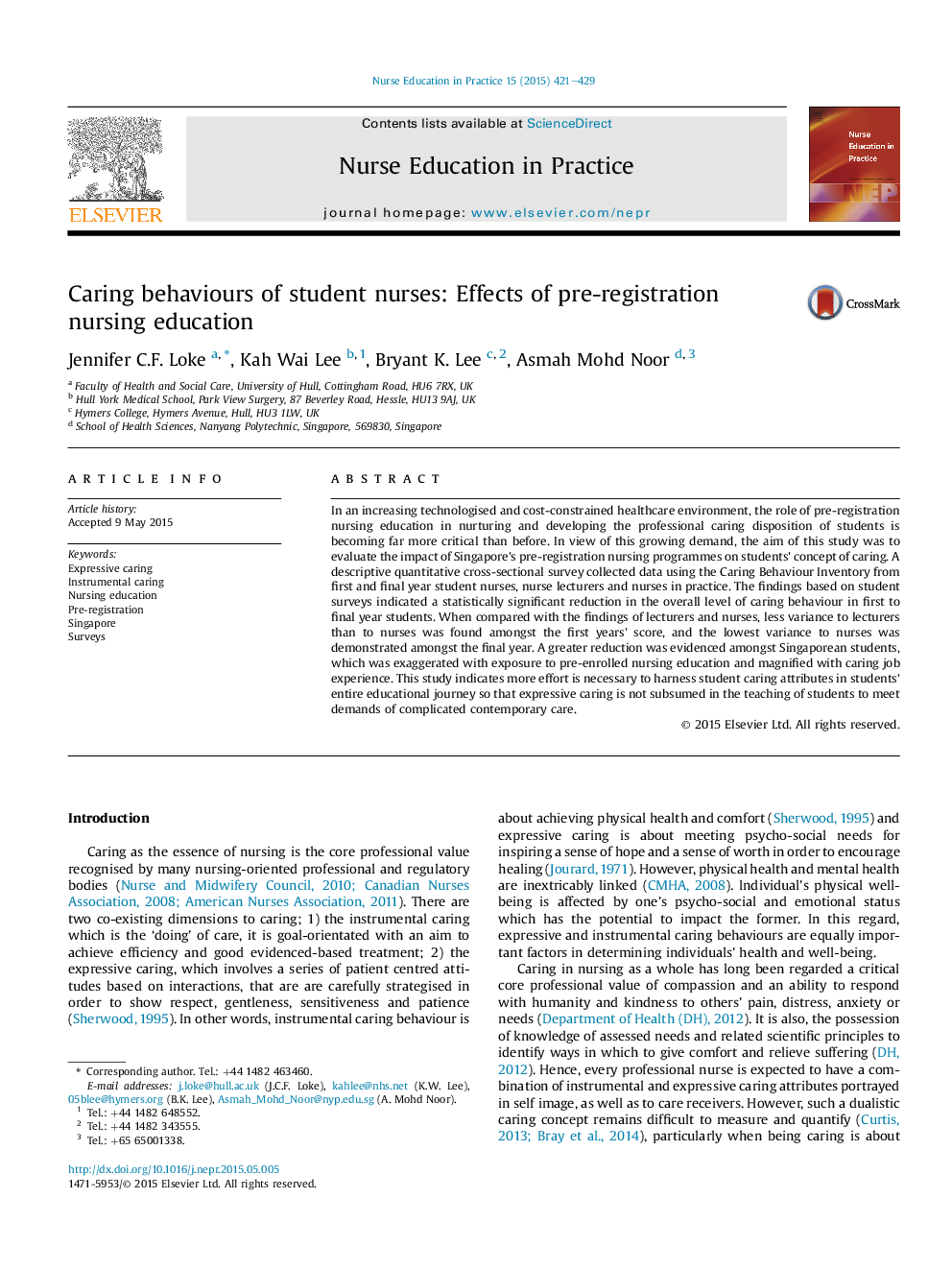| Article ID | Journal | Published Year | Pages | File Type |
|---|---|---|---|---|
| 366736 | Nurse Education in Practice | 2015 | 9 Pages |
•We examine caring behaviour inventory (CBI) score of first and final year students.•We compare students' CBI scores with that of lecturers and nurses in practice.•First year scores resembled lecturers' and final year scores resembled nurses'.•Level of caring behaviours decreases from first to final year students.•More effort is required in nursing education to harness student caring attributes.
In an increasing technologised and cost-constrained healthcare environment, the role of pre-registration nursing education in nurturing and developing the professional caring disposition of students is becoming far more critical than before. In view of this growing demand, the aim of this study was to evaluate the impact of Singapore's pre-registration nursing programmes on students' concept of caring. A descriptive quantitative cross-sectional survey collected data using the Caring Behaviour Inventory from first and final year student nurses, nurse lecturers and nurses in practice. The findings based on student surveys indicated a statistically significant reduction in the overall level of caring behaviour in first to final year students. When compared with the findings of lecturers and nurses, less variance to lecturers than to nurses was found amongst the first years' score, and the lowest variance to nurses was demonstrated amongst the final year. A greater reduction was evidenced amongst Singaporean students, which was exaggerated with exposure to pre-enrolled nursing education and magnified with caring job experience. This study indicates more effort is necessary to harness student caring attributes in students' entire educational journey so that expressive caring is not subsumed in the teaching of students to meet demands of complicated contemporary care.
